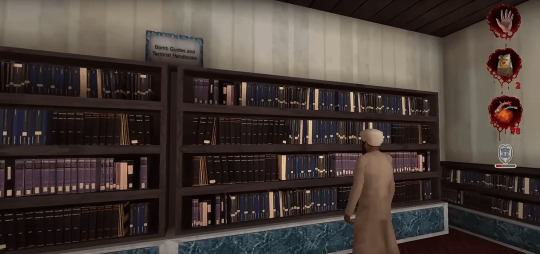#Al Qaeda
Explore tagged Tumblr posts
Text
instagram
#politics#world politics#islamists#muslim#islam#illegal immigration#illegal invasion#trojan horse#hamas is isis#al qaeda#islamic jihad#ghetto#Instagram
173 notes
·
View notes
Text















Warfare (2025)
Dir. Ray Mendoza, Alex Garland
#warfare#movie#cinema#film#drama#war film#warfare movie#ray mendoza#alex garland#a24#2025#2025 films#will poulter#d'pharaoh woon a tai#cosmo jarvis#finn bennett#taylor john smith#michael gandolfini#adain bradley#noah centineo#evan holtzman#henry zaga#joseph quinn#charles melton#navy seals#navy#iraq war#al qaeda#ramadi
46 notes
·
View notes
Text

Still relevant, 10 years later.
91 notes
·
View notes
Text
You know, Greta the doom gremlin isn't the first white savior to go to gaza...
Remember Vittorio Arrigoni? Remember how he was kidnapped and murdered by the beoceful beoble of balestine?

These useful idiots are the perfect candidates for the Darwin award, aren't they...
#gremlin greta#greta thunberg#islamic jihad#fuck terrorists#leftist brainrot#useful idiots#chickens for kfc#jew hate makes you stupid#al qaeda#queers for palestine#virtue signaling#vittorio arrigoni
16 notes
·
View notes
Text

They're Y'all Qaeda. and Vanilla Isis. Instead of Jihadists, they're Yeehawdists.
10 notes
·
View notes
Text
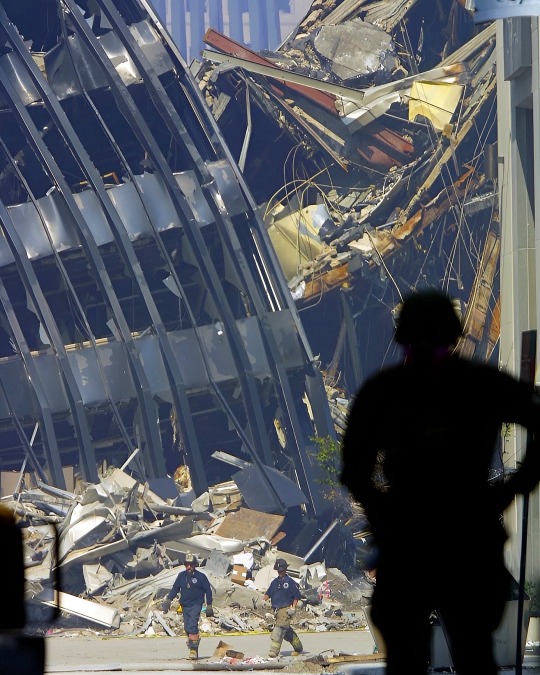
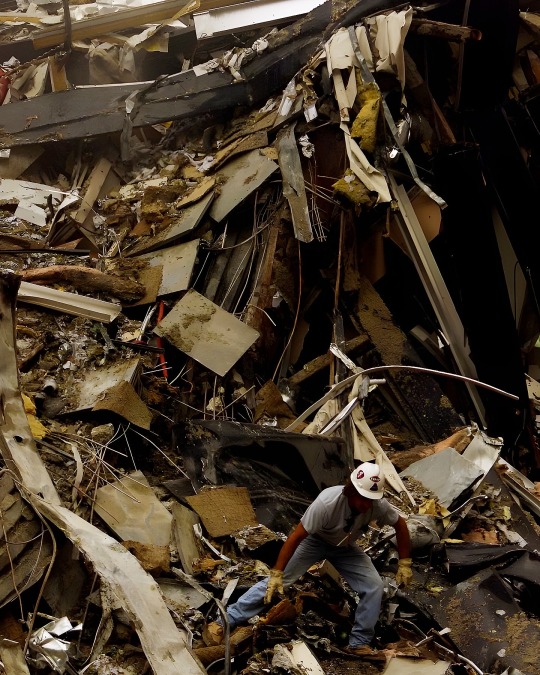
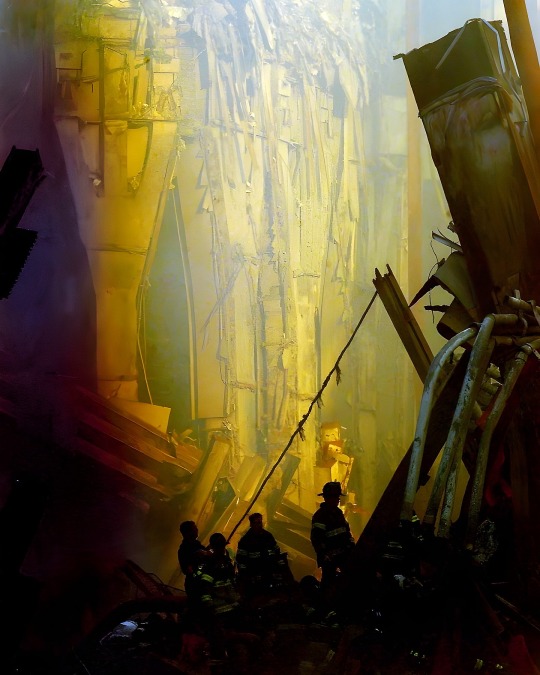
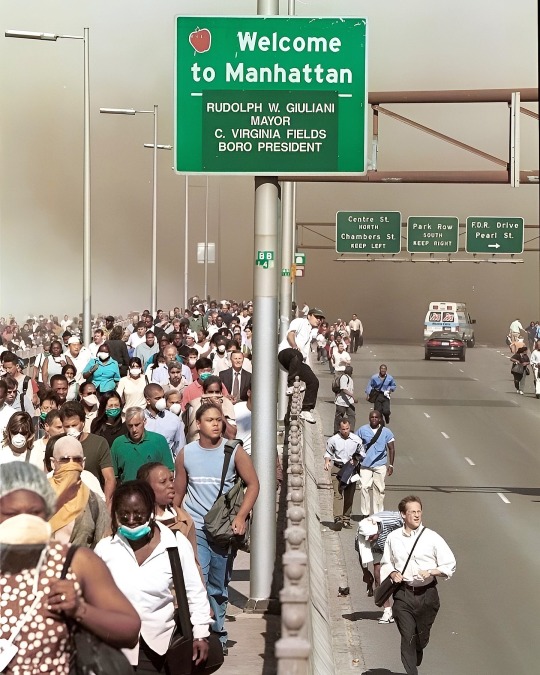

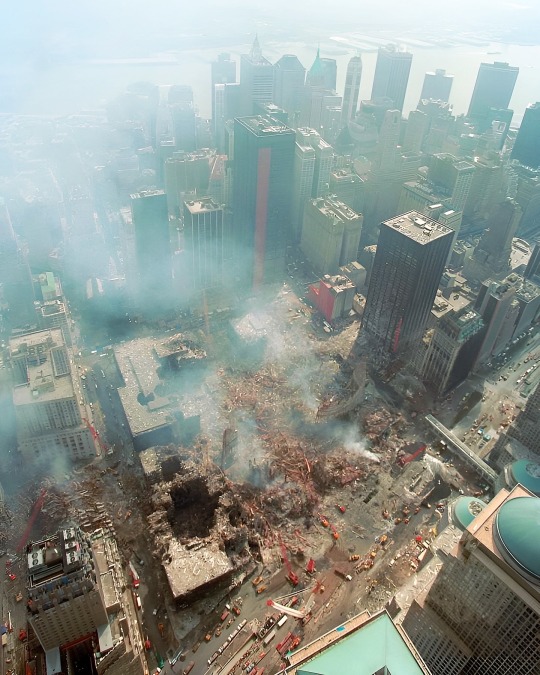
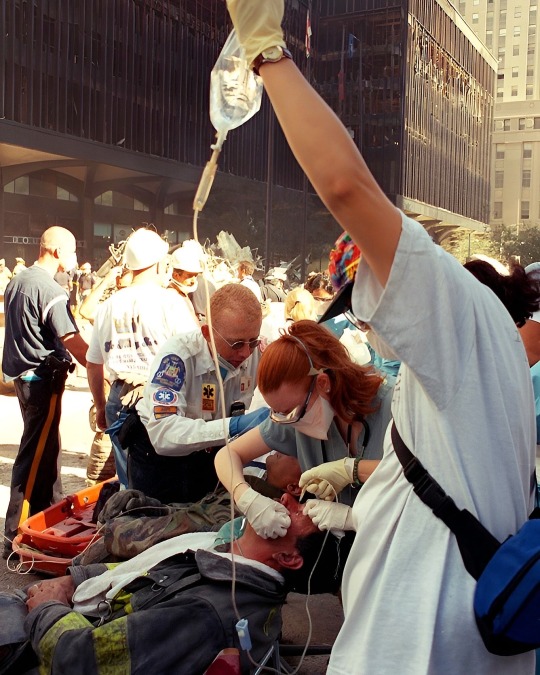
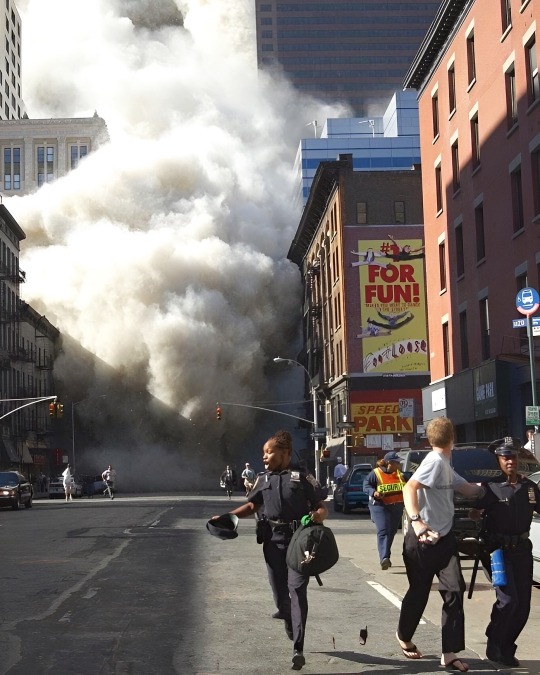
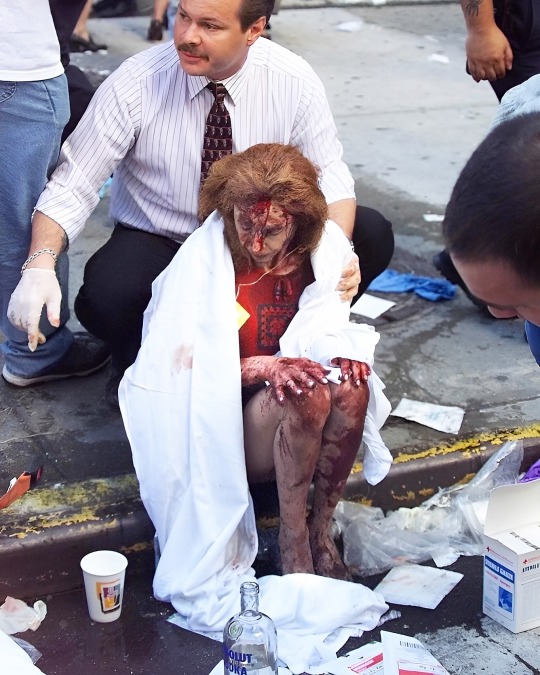
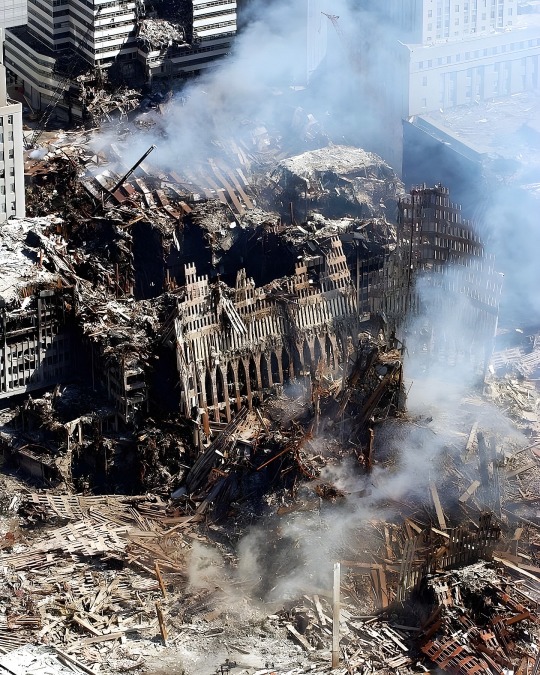
After effects of World Trade Center attacks on September 11th, 2001
https://www.instagram.com/share/BAEJnMcul0
#archive page#explore page#curatethewav#explore#moodboard#awge#fypシ゚viral#world trade center#bush#9/11#ground zero#tw 9/11#twin towers#nyc#al qaeda#2001#neverforget#new york#memorial#building#tower#twintower#honor#architecture#nyc architecture#big Apple#America#USA#fruitstandnyc#september 11th
15 notes
·
View notes
Text

By: France 24
Published: Jan 7, 2025
France on Tuesday marked 10 years since the terrorist shooting that targeted satirical weekly Charlie Hebdo. President Emmanuel Macron and Paris Mayor Anne Hidalgo led commemorations at the newspaper's former offices, where two al Qaeda-linked gunmen killed a dozen people in January 2015.
France marked on Tuesday 10 years since an Islamist attack on the Charlie Hebdo satirical newspaper that shocked the country and led to fierce debate about freedom of expression and religion.
President Emmanuel Macron and Paris Mayor Anne Hidalgo led commemorations at the site of the weekly's former offices, which were stormed by two masked al Qaeda-linked gunmen with AK-47 assault rifles.
Macron and Hidalgo also remembered Ahmed Merabet, a Muslim police officer guarding the offices who was executed at point-blank range as he begged for his life in one of the most shocking images recorded of the tragedy.
Twelve people died in the attacks, including eight editorial staff, while a separate but linked hostage-taking at a Jewish supermarket in eastern Paris by a third gunman on January 9, 2015, claimed another four lives.
The bloodshed signalled the start of a dark period for France during which extremists inspired by al Qaeda and the Islamic State group repeatedly mounted attacks that set the country on edge and raised religious tensions.
"Today is not necessarily sad," Frederica Wolinksi, the daughter of famed French cartoonist and Charlie Hebdo contributor Georges Wolinski said. "It's good that 10 years later we can still remember those who died on 7 January so well."
A retrospective of Wolinski's work went on display at a Paris gallery at the end of last year in one of several media events, from new books to documentaries, to commemorate the anniversary.
Charlie Hebdo has published a special edition to mark the 10-year anniversary that features a front-page cartoon with the caption "Indestructible!"
In a typically provocative move, the militantly atheist publication also organised a God-themed cartoon contest that invited submissions of the "funniest and meanest" caricatures of religious figures.
"Satire has a virtue that has enabled us to get through these tragic years: optimism," said an editorial by its director Laurent Sourisseau, known as "Riss", who survived the 2015 massacre.
"If you want to laugh, it means you want to live."
The attack on the newspaper by two Paris-born brothers of Algerian descent was said to be revenge for its decision to publish caricatures lampooning the Prophet Mohammed, Islam's most revered figure.
'Je suis Charlie'
The killings fuelled an outpouring of sympathy in France expressed in a wave of "Je Suis Charlie" ("I Am Charlie") solidarity, with many protestors brandishing pencils and pens and vowing not to be intimidated by religious fanatics.

[ Francois Hollande, then president, led a solidarity march in Paris joined by 40 other world leaders days after the 2015 attack. ]
Days after the attack France's then-president François Hollande led a solidarity march in Paris joined by 40 world leaders and millions of protestors in support of free speech.
Interior Minister Bruno Retailleau, speaking on RTL Tuesday, acknowledged how far France has come, while warning of the persistent dangers.
“France has rearmed considerably, but the threat is still there,” he said, pointing to both external dangers and the rise of homegrown radicalisation.
“The nature of the threat has changed,” Retailleau added. “It is now primarily endogenous – young individuals radicalised through social media. Last year alone, our services foiled nine attacks, the highest number since 2017.”
The impact of the attacks continued to reverberate beyond France.
On the 10-year anniversary, Chancellor Olaf Scholz said that Germany "shares the pain of our French friends".
The "barbaric attack ... targeted our common values of liberty and democracy – which we will never accept", Scholz said in a post in French on X.
Cartoons and controversy
The 10-year anniversary of the killings has lead to fresh introspection in France about the nature of press freedom and the ability of publications such as Charlie Hebdo to blaspheme and ridicule religious figures, particularly Islamic ones.
"Are we all still Charlie?" public broadcaster France 2 will ask in a special debate programme on Tuesday evening, with all major media organisations marking the event in some way.
Left-leaning daily Le Monde said the shock of the killings was comparable to that felt in the United States after the September 11, 2001, attacks on the country.
"How can we not deplore that the 'I am Charlie' has given way to a certain relativism with regards to freedom of expression and blasphemy, in particular among young generations?" it said.
Critics of Charlie Hebdo, foreign and domestic, are often puzzled by its crude humour and deliberately provocative cartoons that regularly incite controversy.
It has been accused of crossing the line into Islamophobia – which it denies – while its decision to repeatedly publish cartoons of Mohammed was seen by some as driving a wedge between the white French population and the country's large Muslim minority.
But a survey carried out by polling group Ifop and published in this week's Charlie Hebdo indicated widespread public support among French people for the freedom of expression to override concern for religious sensibilities.
A total of 76 percent of respondents believed freedom of expression and the freedom to caricature were fundamental rights, and 62 percent thought people had the right to mock religious beliefs.
--

[ "Indestructible!" ]
"If you want to laugh, it means you want to live. Laughing, irony, and caricatures are manifestations of optimism. Whatever happens, dramatic or happy, the desire to laugh will never cease." -- Charlie Hebdo director Riss
#Charlie Hebdo#je suis charlie#free speech#freedom of speech#islam#al Qaeda#islamic violence#islamic terrorism#islam ruins everything#criticism of islam#criticism of religion#religion#secularism#religion is a mental illness
15 notes
·
View notes
Text

In just 11 days the entire geopolitical structure of the Middle East has changed forever.
Read More: https://thefreethoughtproject.com/foreign-affairs/with-the-fall-of-damascus-western-warhawks-jump-for-joy
#TheFreeThoughtProject
12 notes
·
View notes
Text
the osamaverse so far! :3



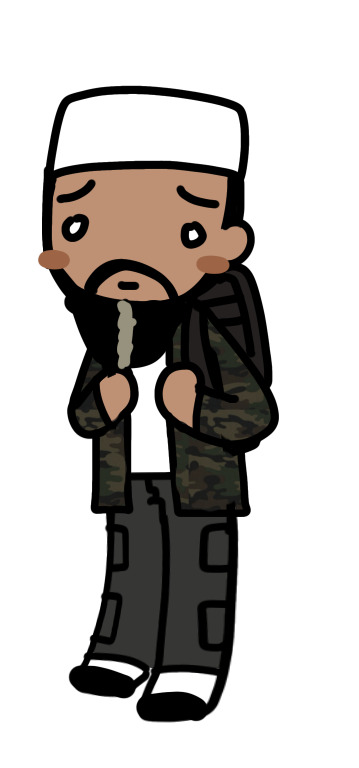
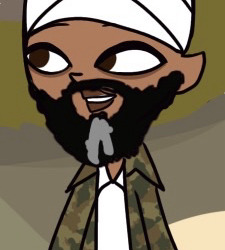
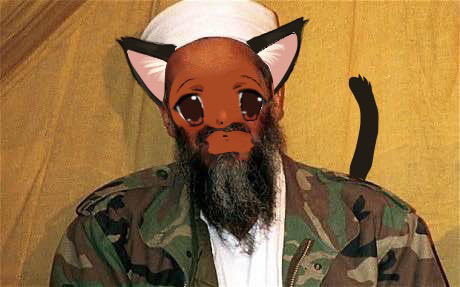
in order: (upper left to bottom right) barssama, whitesama, nosesama, shotasama, total drama sama, and moesama!
- 🪖
4 notes
·
View notes
Text

Maybe when she said Americans are stupid, she was right? Why the hell is she in Government or even in the country?! She's the enemy!
#politics#us politics#democrats are corrupt#democrats will destroy america#wake up democrats!!#ilhan omar#al qaeda#hamas is isis#muslim#graft and corruption#political corruption#terrorists#us congress
229 notes
·
View notes
Text
Today I learned (from a Jacob Geller video, but here's an article, too) that Al Qaida went on a rampage committing arson, destroying ancient scrolls and manuscripts (specifically in Mali). A librarian who was preserving a collection of PRICELESS manuscripts in Timbuktu knew that Al Qaida would be coming to their library sooner or later, so over the course of six months with the help of several volunteers, they would transport around 200,000 books.
(Some of the documents & books in the library didn't make it out/were destroyed around January 2013) In the beginning they drove 600 mile (checkpoint filled) round trip again and again to each house that has volunteered to put their life on the line to save the books.
Eventually, that method became impossible, and he discovered he (and the other volunteers) only have one choice: FLOATING THE REST OF THE BOOKS DOWN THE NIGER RIVER. BOOKS. DOWN A RIVER. Seven Hundred Ninety One (791) TRUNKS/"footlockers" of BOOKS were sent down a river. You want to know how many made it? How many were recovered? ALL SEVEN HUNDRED NINETY ONE TRUNKS WORTH.
These books are literal relics. "Some date back to the 13th Century, and have survived more than 700 years." Bro, you are awesome, but you are going to give me a heart attack. Anyway, this some wild history and the art in these manuscripts is beautiful.

#Mali#Timbuktu#history#world history#african history#al qaeda#books#manuscripts#documents#islamic culture#art#tumblr history#west africa#jacob geller#video essay#article#recent history#calligraphy#african languages#13th century#ancient history#ancient art
143 notes
·
View notes
Text
“The Syrian government fell early Sunday in a stunning end to the 50-year rule of the Assad family after a sudden rebel offensive sprinted across government-held territory and entered the capital in 10 days.
Syrian state television aired a video statement by a group of men saying that President Bashar Assad has been overthrown and all detainees in jails have been set free.
(…)
The statement emerged hours after the head of a Syrian opposition war monitor said Assad had left the country for an undisclosed location, fleeing ahead of insurgents who said they had entered Damascus following the remarkably swift advance across the country.
(…)
It was the first time opposition forces had reached Damascus since 2018, when Syrian troops recaptured areas on the outskirts of the capital following a yearslong siege.
(…)
The night before, opposition forces took the central city of Homs, Syria’s third largest, as government forces abandoned it. The city stands at an important intersection between Damascus, the capital, and Syria’s coastal provinces of Latakia and Tartus — the Syrian leader’s base of support and home to a Russian strategic naval base.
The rebels had already seized the cities of Aleppo and Hama, as well as large parts of the south, in a lightning offensive that began Nov. 27. Analysts said rebel control of Homs would be a game-changer.
(…)
The advances in the past week were by far the largest in recent years by opposition factions, led by a group that has its origins in al-Qaida and is considered a terrorist organization by the U.S. and the United Nations. In their push to overthrow Assad’s government, the insurgents, led by the Hayat Tahrir al-Sham group, or HTS, have met little resistance from the Syrian army.
(…)
Syrian Prime Minister Mohammad Ghazi al-Jalali said Sunday he does not know where Assad or the defense minister are. He told Saudi television network Al-Arabiyya early Sunday that they lost communication Saturday night.
He has had little, if any, help from his allies. Russia is busy with its war in Ukraine. Lebanon’s Hezbollah, which at one point sent thousands of fighters to shore up Assad’s forces, has been weakened by a yearlong conflict with Israel. Iran has seen its proxies across the region degraded by regular Israeli airstrikes.
U.S. President-elect Donald Trump on Saturday posted on social media that the United States should avoid engaging militarily in Syria. Separately, President Joe Biden’s national security adviser said the Biden administration had no intention of intervening there.”
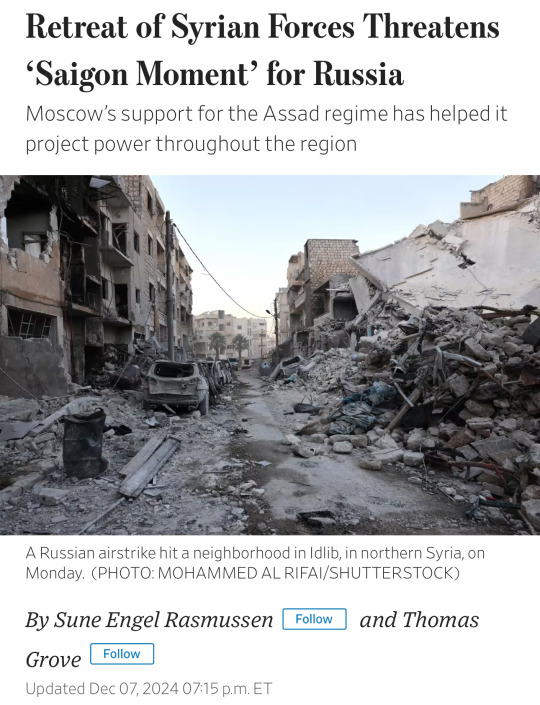
“A fast-advancing rebel offensive in Syria threatens to dislodge Russia from a strategic linchpin that Moscow has used for a decade to project power in the Middle East, in the Mediterranean and into the African continent.
It also challenges Russian President Vladimir Putin’s efforts to portray Moscow as a flag bearer for an alternative global order to rival Western liberalism, and his defense of the Syrian regime as evidence of successful pushback against American dominance in the region.
(…)
Russia intervened in Syria’s civil war in 2015 to prop up President Bashar al-Assad against an armed uprising prompted by the Arab Spring, giving it a role as an influential foreign power in the Middle East. It sought to leverage its relations with rival powers such as Iran and Israel, as well as Turkey and Gulf states, to mediate conflicts and claim status as a regional power broker.
(…)
Syria has partly been an ideological project for Putin. The intervention in Syria became a way for Russia to extend its vision of a multipolar world opposed to the Western liberal order, said Nicole Grajewski, fellow at the Carnegie Endowment for International Peace and author of a coming book on Russia’s relationship with Iran, including in Syria.
“To see Russian planes leave Syria as rebel forces move onward towards their air bases, and their assets in Damascus fall, this would be so devastating for the Russian image of itself,” she said. “It would be akin to a Saigon moment for them.”
Putin’s assistance was instrumental to Assad’s survival, and showed Moscow’s allies far beyond the Middle East that Russian intervention could help push back popular uprisings, said a former Russian official. African leaders began to invite Russia, and specifically contractors from the Wagner paramilitary group who also played a critical role in Syria, to help stabilize their regimes.
Syria holds significant strategic value for Russia as well. The Khmeimim air base near the coastal city of Latakia serves as a logistical hub for flights to Libya, the Central African Republic, and Sudan, where Russian private contractors and soldiers have operated for years.
A naval base in the port city of Tartus serves as the only replenishment and repair point for the Russian navy in the Mediterranean, where it has brought in goods by bulk through the Black Sea. Tartus has granted Putin access to a warm water port, something Russian rulers for centuries before him sought in the Middle East. The port could also potentially connect Russia to Libya—like Syria, a Soviet-era ally—where it seeks a naval base to extend its reach into sub-Saharan Africa. A rebel takeover of those Syrian coastal positions could jeopardize Russia’s global-power projection.
“Syria provided so many advantages at a low cost,” said Anna Borshchevskaya, senior fellow at the Washington Institute think tank and author of a book on Putin’s war in Syria. “Losing Syria would be a big strategic defeat that would reverberate beyond the Middle East. It would have global repercussions.”
(…)
“One way to see Putin’s ambition in Syria is as part of his larger imperial vision,” said Borshchevskaya. “That’s what Ukraine is, that’s what [the invasion of] Georgia was in 2008, and to some extent that’s what Syria was,” she said. “Now in 2024, Russia finally finds itself overstretched.”
(…)
The Russian intervention in the civil war turned the tide in Assad’s favor and helped Iran consolidate its military foothold all the way to the Israeli border. Western attempts to isolate Moscow and Tehran through sanctions have pushed them closer together.”
“For years, Syria’s complicated battlefields have been populated by shifting groups of militants battling a range of enemies, including each other, and proxies backed by outside powers. Iran and Russia have propped up the autocratic Assad regime for more than a decade, while Turkey and the United States have troops on the ground in areas outside government control, and each support local proxies.
News reports and videos posted on social media indicate U.S.-backed rebels, supported by American airstrikes, may now be battling Syrian government forces as part of renewed fighting in the east.
That U.S. backing means boots on the ground. Around 900 U.S. troops are deployed in Syria alongside private military contractors, in what one expert calls “arguably the most expansive abuse” of the war powers granted to the executive branch in the wake of 9/11 — and those troops have, on average, come under fire multiple times each week since last October, according to new Pentagon statistics obtained by The Intercept.
Since the war in Gaza began last year, U.S. forces have been under sustained attack by Iran-backed militants across the Middle East, with the Pentagon’s Syrian bases being the hardest hit. Since October 18, 2023, there have been at least 127 attacks on U.S. forces in Syria, according to Lt. Cmdr. Patricia Kreuzberger, a Pentagon spokesperson, and information supplied by U.S. Central Command, or CENTCOM. On average, that’s about one attack every three days.
(…)
Brian Finucane, a former State Department lawyer now with the International Crisis Group, said the ongoing bombardment of U.S. bases should prompt hard questions in America’s halls of power. “Why are U.S. troops in Syria? What is the mission? What is the endgame? And is this legally authorized?” are the questions that need answers, he said. “The administration doesn’t want to have that debate. Congress also seems perfectly fine avoiding it. And so, the legislative and executive branches are content to muddle along, avoiding their constitutional responsibilities — the need for congressional authorization — and really debate the merits of this conflict.”
THE U.S. MILITARY has been conducting operations in Syria since 2014. America’s bases there and in neighboring Iraq ostensibly exist to conduct “counter-ISIS missions,” despite the fact that the Pentagon concluded in 2021 that the Islamic State in Syria “probably lacks the capability to target the U.S. homeland.”
Around 900 U.S. troops — including commandos from Combined Special Operations Joint Task Force-Levant — and an undisclosed number of private military contractors are operating in Syria. In 2022, The Intercept revealed the existence of a low-profile 127-echo counterterrorism program in Syria targeting Islamist militants. Under the 127e authority, U.S. Special Operations forces arm, train, and provide intelligence to small groups of elite foreign troops. But unlike traditional foreign assistance programs, which are primarily intended to build local capacity, 127e partners are dispatched on U.S.-directed missions, targeting U.S. enemies to achieve U.S. aims.
The Syrian Democratic Forces, a Kurdish-led militant group based in the country’s northeast is America’s main proxy force in Syria. While the SDF fights Islamist extremists with U.S. support, it also battles Turkey and Turkish-backed militants. Turkey, America’s longtime NATO ally, opposes the SDF due to that group’s ties to the Kurdistan Workers’ Party, a Kurdish nationalist militant group that both the Turkish and U.S. governments, among others, have designated a terrorist group.
(…)
The future of America’s escalating war in Syria may face renewed scrutiny early next year. President-elect Donald Trump showed antipathy to the U.S. war in Syria and withdrew U.S. forces from the north of the country in 2019, opening the door to a Turkish invasion.
“When Trump ordered the removal of U.S. forces from Syria in late 2018, there was a scramble within the government to try to figure out what that meant and whether there were ways to walk it back,” said Finucane, the former State Department lawyer. “The Pentagon was fine to pull out U.S. troops from al Tanf because there was really no counter-ISIS mission. But in his memoir, [Trump’s national security adviser] John Bolton said he wanted to keep troops there to counter Iran.”
For four years, experts say the Biden administration has continued this shadow effort aimed at Iran under the guise of a counter-ISIS mission, fending off several congressional efforts to force the removal of U.S. troops from Syria. Last year, a bid by Sen. Rand Paul, R-Ky., to compel the withdrawal of all U.S. troops from Syria within 30 days also failed. “The American people have had enough of endless wars in the Middle East,” Paul told The Intercept at the time. “Yet, 900 U.S. troops remain in Syria with no vital U.S. interest at stake, no definition of victory, no exit strategy, and no congressional authorization to be there.” Those troops may be increasingly drawn into the Syrian civil war in support of their SDF allies.
“This is arguably the most expansive abuse of the 2001 AUMF in the history of the law,” said Erik Sperling of Just Foreign Policy, an advocacy group critical of mainstream Washington foreign policy, referring to the 2001 Authorization for Use of Military Force, enacted in the wake of the September 11 attacks. “We know from Biden administration leaks that the U.S. presence in Syria was part of an anti-Iran proxy war strategy but after Congress started voting to remove troops, they cracked down on those leaks and they said it’s only about terrorism.”
(…)
U.S. troops have, however, been relentlessly attacked across the Middle East since last October. There have been at least 208 attacks against U.S. forces in the region — two in Jordan, 79 in Iraq, and 127 in Syria — according to Kreuzberger and CENTCOM. In addition to coming under fire about once every other day, U.S. troops have been killed or seriously injured in these attacks. In January, three U.S. soldiers were killed and more than 40 other personnel were injured in an attack on a base in Jordan near the Syrian border. Eight U.S. troops also suffered traumatic brain injuries and smoke inhalation from an August 9 drone attack on the Rumalyn Landing Zone in northeastern Syria.”
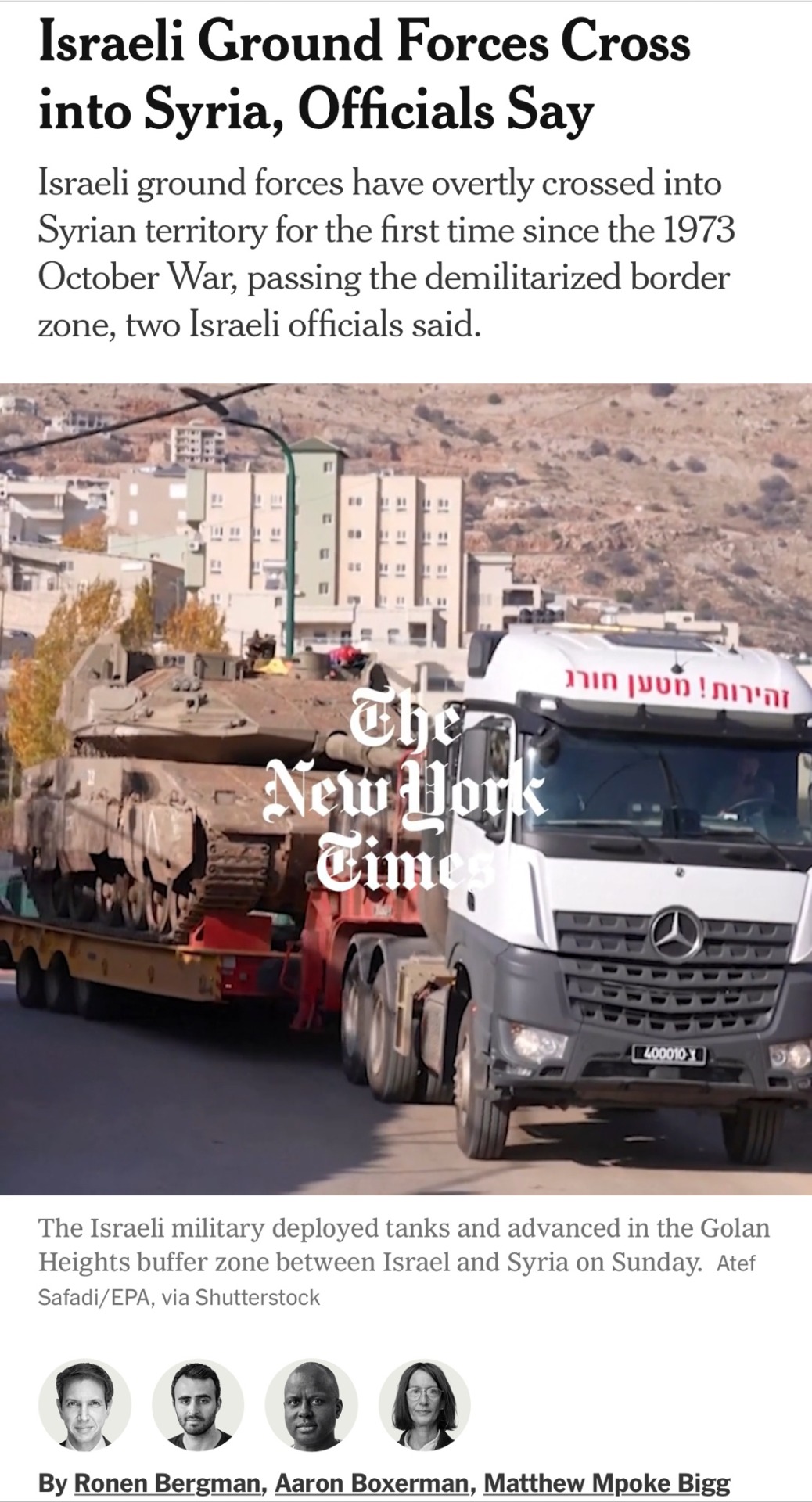
“Israeli ground forces advanced beyond the demilitarized zone on the Israel-Syria border over the weekend, marking their first overt entry into Syrian territory since the 1973 October War, according to two Israeli officials speaking anonymously to discuss sensitive developments.
(…)
Israeli forces took control of the mountain summit of Mount Hermon on the Syrian side of the border, as well as several other locations deemed essential for stabilizing control of the area.
Lt. Gen. Herzi Halevi, the Israeli military chief of staff, appeared to confirm on Saturday night that Israeli forces had gone beyond a demilitarized buffer zone in the Golan Heights, saying Israel had “deployed troops into Syrian territory,” although he did not elaborate further.
(…)
More recently, the Israeli military has been more explicit about striking sites and people there, saying it was targeting Hezbollah’s supply lines. But the deployment of ground troops beyond the demilitarized zone in Syria marks a significant shift in policy as the first overt entry of Israeli military forces into Syrian territory since the 1974 cease-fire agreement that officially ended the last war between Israel and Syria.
The Israeli Air Force over the weekend was also striking targets in Syria to destroy government military assets that could fall into the hands of rebel forces and are considered strategic threats by Israel, the two officials said.
(…)
The targets included small stockpiles of chemical weapons, primarily mustard gas and VX gas, which remained in Syrian possession despite prior agreements to disarm, according to the officials. The Israeli military also targeted radar-equipped batteries and vehicles of Russian-made air defense missiles, as well as stockpiles of Scud missiles, according to the two officials.
(…)
Israel captured the Golan Heights during the Middle East war of 1967 and annexed much of the territory in 1981. The rest is controlled by Syria. Most of the world views this area as Israeli-occupied Syrian territory, though Donald J. Trump recognized Israeli sovereignty there in 2019 during his first term as president.”
#syria#assad#assad regime#ba’ath#ba’athism#baathism#middle east#arab#civil war#al qaeda#russia#putin#ukraine#iran#trump#biden#israel#golan heights#hezbollah#hamas
6 notes
·
View notes
Text

#al qaeda#9/11#manufactured consent#manufacturing consent#western imperialism#privately incorporated permanent war economy#military industrial complex#military industrial entertainment complex#op#ipot
23 notes
·
View notes
Text

Western nations face a PR crisis as reports suggest there is a rush in Washington to remove HTS and Jolani from the terrorist list after backing their overthrow of Assad.
Read More: https://thefreethoughtproject.com/antiwar/from-terrorist-to-freedom-fighter-how-the-west-rebranded-al-qaedas-jolani
#TheFreeThoughtProject
10 notes
·
View notes
Text

La foto de la vergüenza. Albares es el Ministro de Exteriores más asquerosamente otanista que ha tenido jamás este país. Dejó pudrirse a Pablo González en una cárcel polaca por dictado de la UE, y ahora va EN PERSONA a reconocer al 73rr0r1574 45351n0 éste. Está hasta sonriendo.
2 notes
·
View notes
